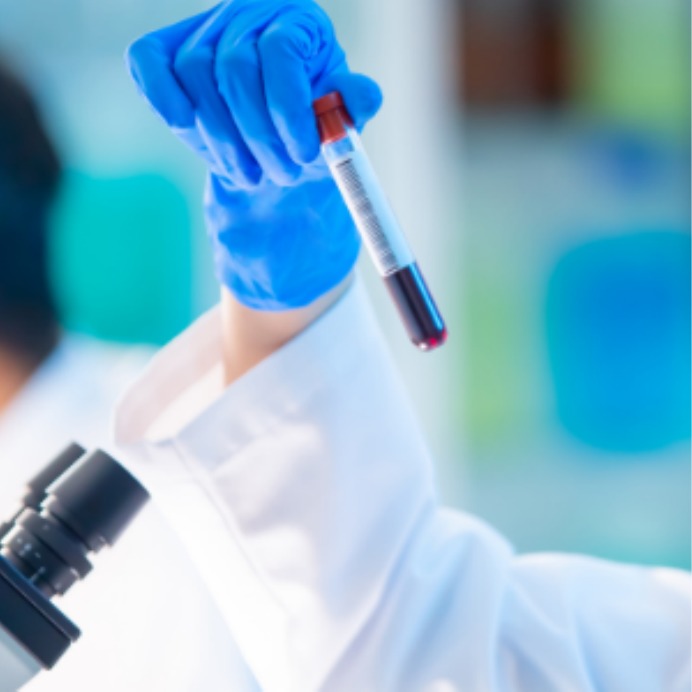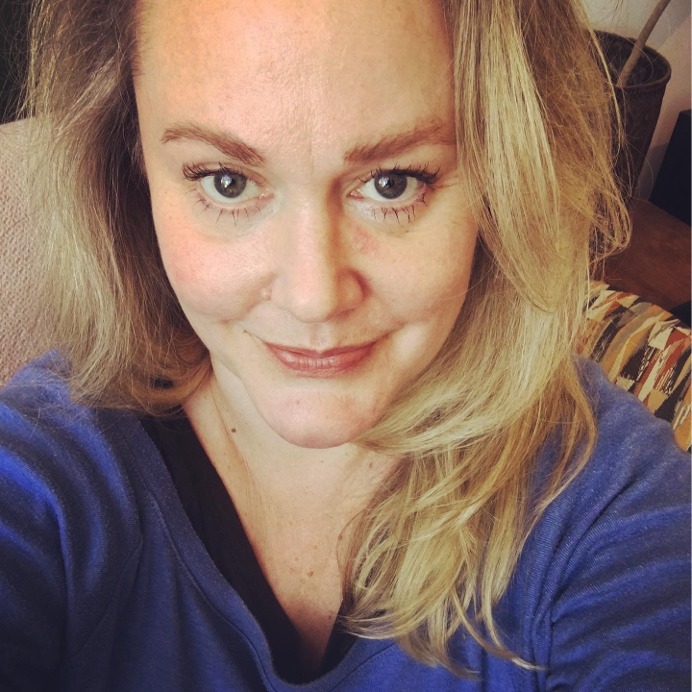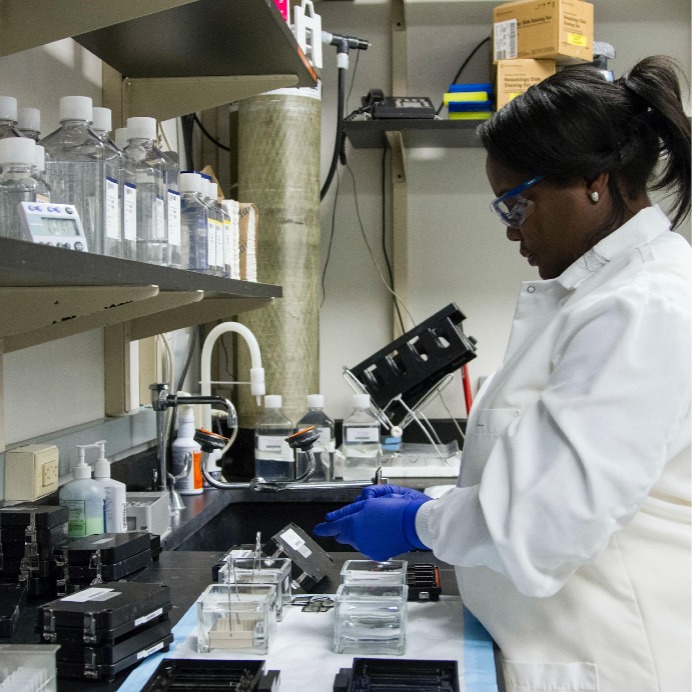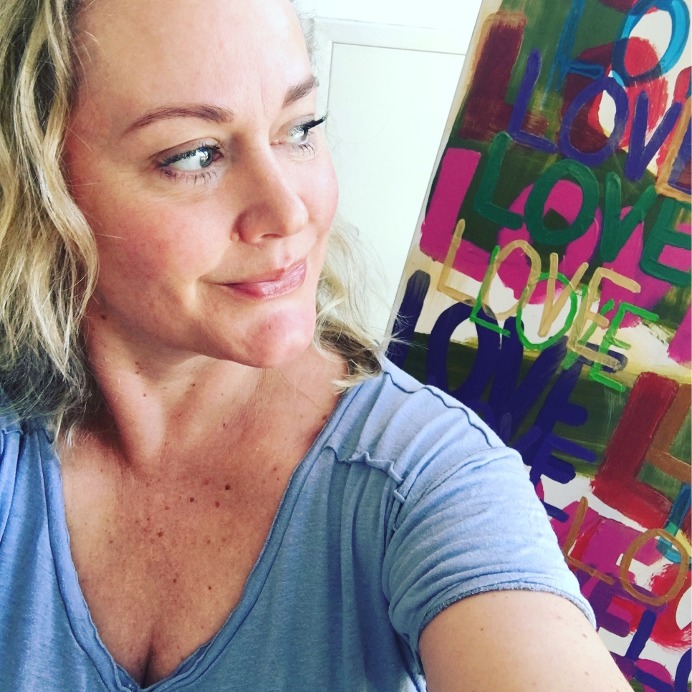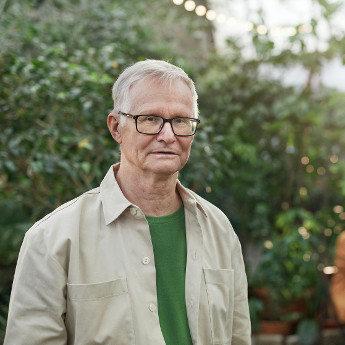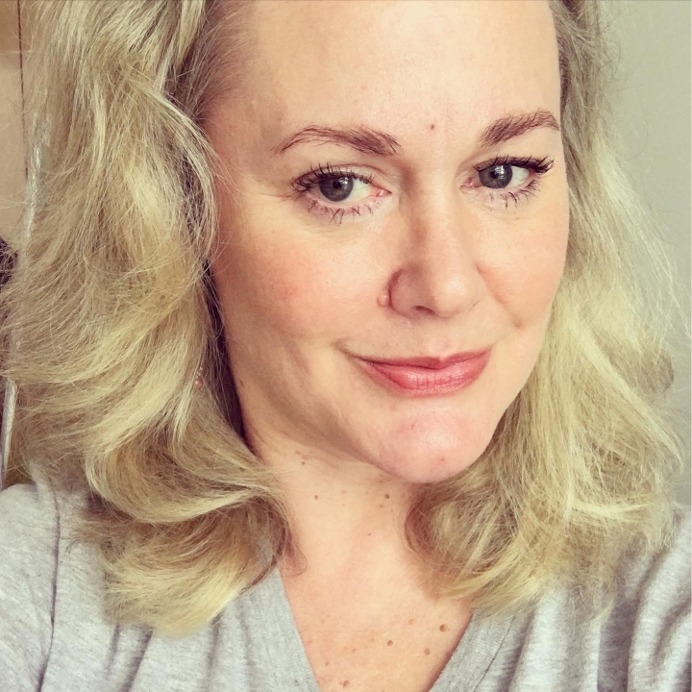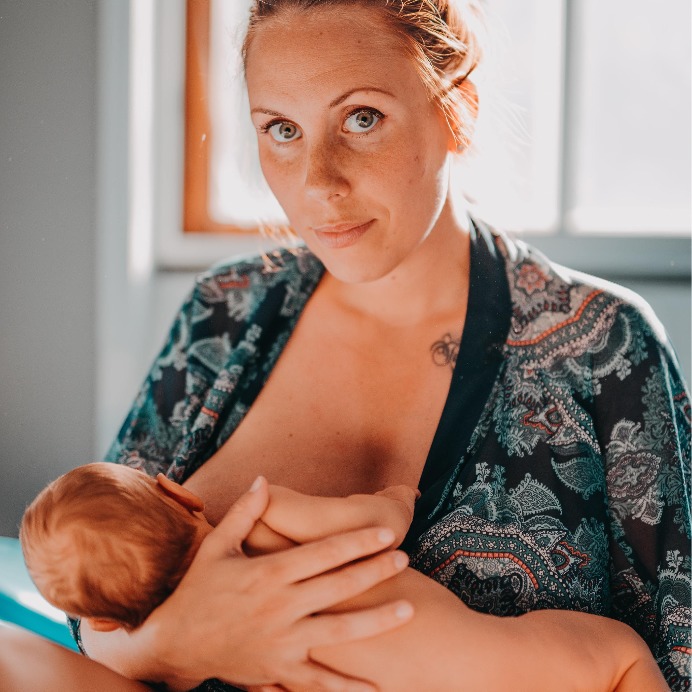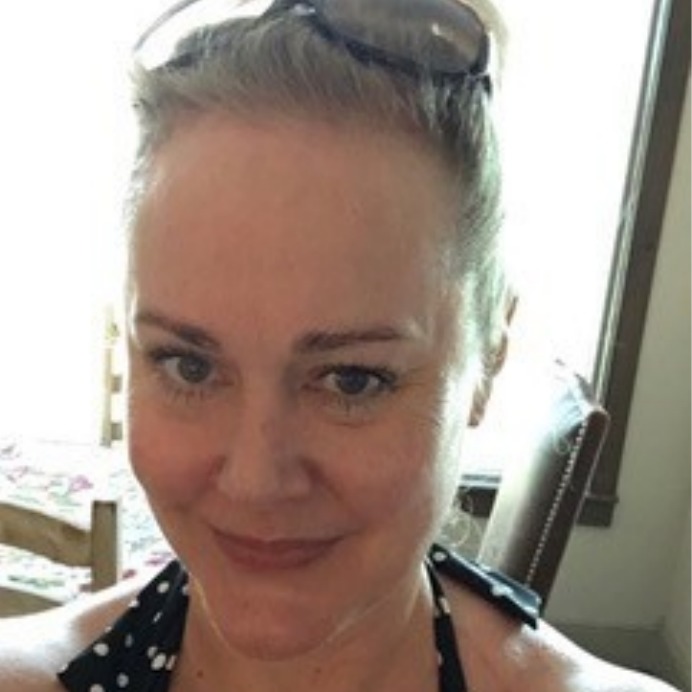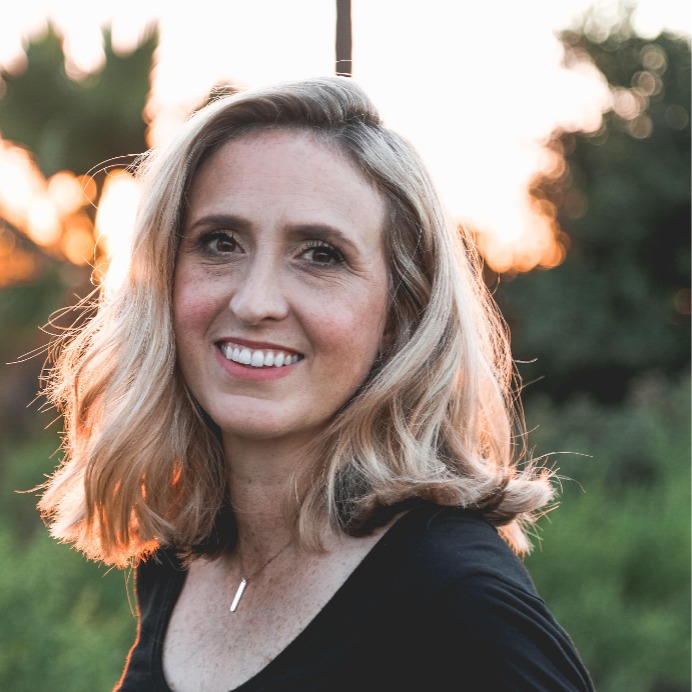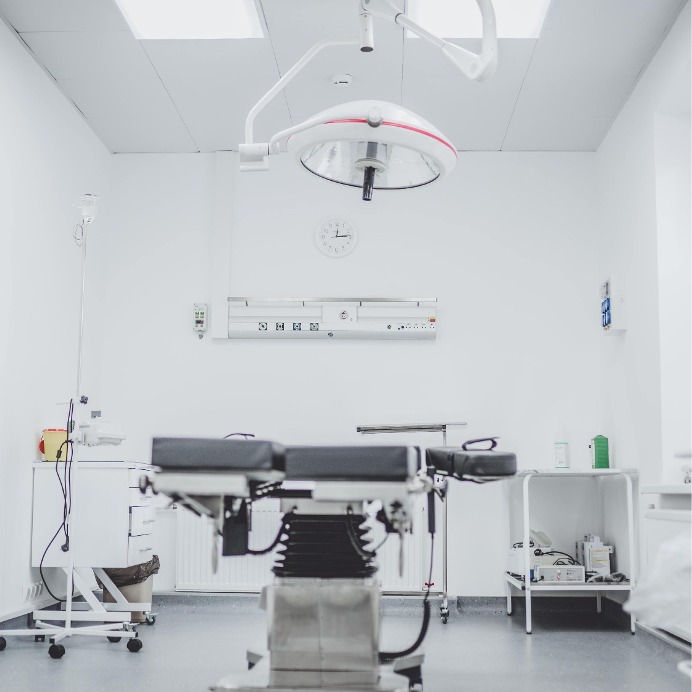By continuing to use our site, you consent to the processing of cookies, user data (location information, type and version of the OS, the type and version of the browser, the type of device and the resolution of its screen, the source of where the user came from, from which site or for what advertisement, language OS and Browser, which pages are opened and to which buttons the user presses, ip-address) for the purpose of site functioning, retargeting and statistical surveys and reviews. If you do not want your data to be processed, please leave the site.
The Voice of People With Breast Cancer
Education
Our Voices Blog
Contributor : CBCN Team
Three Sisters Fighting Cancer Together
I am a 51-year-old woman from the Loire Valley. I live near Orléans, 120 kilometres south of Paris. I grew up surrounded by women. I am the youngest of five sisters; twenty years separate me from my oldest sister and ten years separate me from the fourth one. Our mother received her breast cancer diagnosis in 1985 and at the time, cancer care was awful. My father died from a cardiac arrest in July 1986, probably caused by grief. My mother was brave and fought as much as she could, but she passed away in May of 1989 when I was 20 years old. Because of her breast cancer diagnosis, my sisters and I have closely monitored our risk of developing breast cancer.
Blood Clots and Cancer: What Is It and Are You at Risk?
When you have a cut or an injury, blood clots are useful in stopping the bleeding in order to help your body heal. However, there can be a negative side to blood clots. If a blood clot develops in a vein, which is called a venous thromboembolism (VTE) or venous thrombosis, or if it develops in a deep vein, which is called a deep vein thrombosis (DVT), there may be cause for concern.
Sexual Health and Intimacy Tips for Breast Cancer Patients
Sex may be something that isn’t frequently discussed by doctors or oncologists or even friends, but the sexual changes and adjustments you go through following a breast cancer diagnosis can be enormous for you and your partner, depending on how big a part it was in your life before diagnosis and treatments.
Lymphedema Management: Short and Simple Exercises for You
Lymphedema is abnormal swelling of the arms, hands, breast, or torso. Breast cancer-related lymphedema generally occurs when the lymph nodes or the lymphatic vessels are damaged or removed following breast cancer treatment. When this happens, blockage in the lymphatic system prevents lymph fluid from properly draining which is what leads to the swelling.
Why It’s Important to Be Your Own Advocate
The Merriam-Webster dictionary defines ‘advocate’ as a verb that means “to support or argue for”. ‘Self-advocacy is defined as “the action of representing oneself or one's views or interests”. While the word, advocate might make us think of protests or political signs, that is not always the case. As someone with a breast cancer diagnosis, self-advocacy and being an advocate simply means being a part of your health care team. It means knowing yourself and speaking up for yourself to make sure that your cancer care needs are met. Self-advocacy is part of participatory medicine where “patients are actively working alongside their physicians to choose the best course of cancer treatment.”
Breast Cancer Math
Before I was diagnosed, I rarely thought about breast cancer. When I did it was once a year, usually in June, as I was planning the line-up of pink-ribbon beauty products I wanted to feature in the upcoming October issue of FASHION, Salon, 29Secrets or whatever other magazine I was working for at the time. Other than that, it just wasn’t on my radar. No disease was really. My inner circle was healthy, well, that is if you didn’t count my mom’s dad dying of liver sclerosis from alcoholism when I was around five or my paternal grandmother passing from Alzheimer’s when I was in my early thirties.
Metastatic Breast Cancer: The Latest Research and Clinical Trials
Research on breast cancer, and more specifically, metastatic breast cancer (mBC), is critical in helping us better understand this disease. While widespread knowledge of mBC is still limited, there are studies that look specifically at the detection, prognosis and treatment of this type of breast cancer. Similarly, clinical trials on metastatic breast cancer are crucial in helping researchers improve the current standard of care. Below are some of the latest research and some currently recruiting clinical trials on metastatic breast cancer.
Lifestyle and Nutrition Considerations for Breast Cancer Patients Series, Part 4: The True “Does Sugar Fuel Breast Cancer?” Story
Sugar, in all its stark white, sparkling glory is an enormously popular, widely misunderstood, and a hotly debated topic in the breast cancer world. Rarely a week passes when I don’t hear or read “Sugar feeds breast cancer”, proclaimed with absolute certainty. People accept this declaration as truth, yet I ask; does it really?
Estro-Belly
I have been struggling with my body image these last 8 weeks. The funny thing is that it’s not with the two scars I have running across my chest. I have actually adapted well to that change, even with my right scar being lumpy and misshapen. What I have been struggling with is my weight gain thanks to Tamoxifen. Without estrogen, my mid-section is taking on the appearance of a barrel. A barrel made of pudding, with an oatmeal crust! Having always been fit and healthy, I am finding myself disturbed by this body morphing of mine.
I Had to Work During Cancer Treatment and it Sucked
I worked during my entire breast cancer treatment. I didn’t want to. I had to. I live alone. I don’t have a husband or boyfriend. I pay my bills on time and by myself. Yes, it was a choice, but it was a horrible one.
Lifestyle and Nutrition Considerations for Breast Cancer Patients Series, Part 3: Links Between Alcohol and Breast Cancer Recurrence: Can Beer and Wine Increase your Risk?
Want to meet me for a drink? Grab a glass of wine and discuss the day and life in general? In my pre-breast cancer days, I loved my red wine. Whether catching up with a friend or sharing a meal with my husband, a glass (or two) of a robust red was de rigueur. Occasionally I’d sip dry Chardonnay, but those peppery, heavy Zin’s stole my heart. On two separate trips to Europe, wine figured prominently in the itinerary. Visiting Burgundy, France and the Tuscan region of Italy, how could it not? One glorious afternoon in Italy, my husband and I toured an obscure winery. We tasted a variety of wines with a group of folks we’d met at a cooking class earlier that day. Someone suggested this hidden gem, and we eagerly tagged along. We all knew each other only from the few hours we’d cooked pasta together. It’s a memory I’ll treasure forever. In this precious life there are so many simple pleasures to enjoy. A glass of really good wine is one.
Bringing Awareness to Male Breast Cancer
When most people picture someone with breast cancer, they often think about women; many are shocked to find out that men can also get breast cancer. While male breast cancer represents less than 1% of all breast cancer cases, it is still a disease that men should be aware of. September is Men’s Cancer Awareness Month and for today’s blog we will be discussing male breast cancer to bring awareness to this disease.
Five Ways I’m Creating Joy in My Life
It’s funny how breast cancer changed the way I feel about myself and my life. Not in a ha-ha sense, although trust me, I would like to laugh more. And not in a questioning kind of way either, although I did torture myself during the first couple of weeks after my diagnosis, looking for the answer to explain why I had breast cancer. As far as I was concerned it was because I never wore sunscreen as a kid; I drank and smoked my way through my twenties; worked 80-hour, ladder-climbing work weeks in my thirties and went through a heartbreaking divorce that left me feeling like road kill in my forties. Except that it wasn’t.
Talking Palliative Care Part 6: Funeral Planning: How this dreaded task may actually provide some relief
Planning a funeral, especially if it’s your own, might be one of the most painful and challenging tasks that any of us will have to complete. The very idea can be overwhelming, anxiety causing and heartbreaking to even think about. That being said, so many people share that while they dreaded the idea of having to plan their own funeral, they often experienced a tremendous sense of peace and the feeling of having a huge weight lifted off their shoulders after completing this process. Since the period after the death of a loved one is incredibly distressing to families, pre-planning a funeral can relieve them of some of the stress and can also give you peace of mind that your wishes are being carried out.
Coping With Scanxiety
Scanxiety may not officially be a real word, but the feelings it brings about are real. Very Well Health defines scanxiety as the term used to “describe the anxiety people with cancer feel while waiting for scans”. Regardless of whether the scans are for diagnostic purposes, monitoring treatment, checking recurrence or as a check-up, individuals can experience apprehension before, during, and while waiting for the results of their scans. The apprehension and fear that is felt can range from feeling claustrophobic in the scan machine to imagining the worst-case scenario of the scan results. Many people experience scanxiety so it is important to learn coping techniques that help eliminate the anxiety.
Breast Cancer and Younger Women
Breast cancer is often associated with older women. The latest statistics on breast cancer show that 83% of breast cancer cases occur in women over 50 years old. In fact, age is a risk factor of developing breast cancer, with ones risk increasing, the older they get. The rates of breast cancer increase after 40 years old and peak at 70 years old.
Breastfeeding Following a Breast Cancer Diagnosis
Breastfeeding has been linked to a few health benefits such as its ability to reduce the risk of being diagnosed with breast cancer. This may be because of reduced exposure to estrogen as well as the shedding of breast tissue. But what happens when breastfeeding cannot reduce your risk of breast cancer because you have already been diagnosed? While breastfeeding comes with its own challenges, having a newborn while dealing with a breast cancer diagnosis comes with its own unique complications. One of these is knowing whether you can breastfeed your child and how to go about it.
My Temporary Tamoxifen Breakup is Making Me Feel All the Feels
I hope I can write this column without crying. Or at least if I do get emotional, that I won’t need to stop a million times while I wait for the sobbing to ease up so that I can see clearly enough to continue typing. And no, I’m not being dramatic.
CBCN’s Newest Digital Magazine: Complementary Therapies
CBCN produces curated magazines that focus on topics that are relevant to the breast cancer community. These magazines provide patients with an easy-to-access method of getting information on various breast-cancer-related topics. The articles featured in our magazine are pulled from Our Voices blog and are created so that breast cancer patients can access certain themes/topics in one place.
My Eczema Turned Out to be Paget’s Disease – A Rare Breast Cancer
I’m writing this as a PSA for all women. We’re always told to check for lumps and to get mammograms. However, Paget’s disease of the breast is a breast cancer that until October, I had never heard about.


